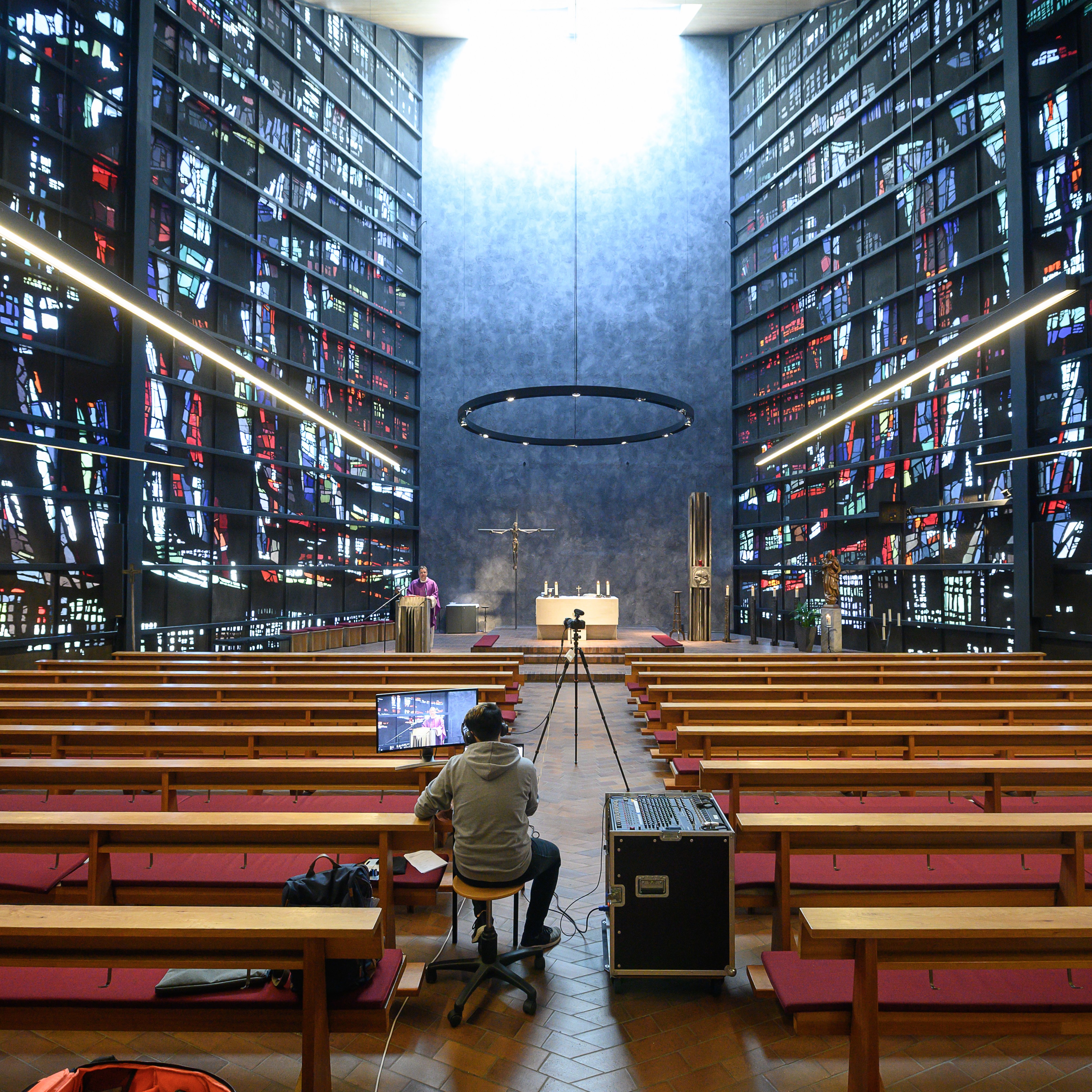Christianity is mostly about waiting around. This will not be news to anyone who’s had to sit through a particularly onerous homily, of course, but as a central facet of Christian belief, it’s often one lost on non-Christians. That the whole rich tapestry of Christian culture functions, theologically, as an extended prelude to Christ’s return is not always appreciated even amongst believers.
The eschatological edge of Christianity – the belief that we really are living in the ‘latter days’ – has been blunted in a society that struggles to conceive of an end to the supply of rare-earth metals, let alone the end of all things. In a “throwaway society”, obsessed with instant gratification, it is easy to feel slightly silly to live your whole life in expectation of something you can’t begin to comprehend. Nevertheless, “awaiting the blessed hope” is core to Christian spirituality.
Early Christian liturgies concluded with a word that sounds strange to modern ears: Maranatha. It means, literally “Come, our Lord!” It’s an affirmation of an article of faith, but at the same time also a reminder of how we should live in light of the cross, and why we live in that way.
We live in this way because we love God. We wait because we love. Or at least, we ought to. During quarantine, I've been participating in a reading group on Dostoyevsky's Brothers Karamazov. One of Dostoyevsky's central concerns is the gap between loving as we ought to – perfectly, “as the father in heaven is perfect” – and loving as we actually love; conditionally or self-interestedly. Dostoyevsky could lay these conflicts out as acutely as he did in part because, in his fictional worlds, the sacraments rarely take centre stage.
Even Dostoyevsky’s most admirable characters seem to live apart from the living symbols of God’s love. But although the lack of visible, tangible grace in Dostoyevsky makes for great fiction, the same situation in our contemporary lives – cut off from the sacraments due to lockdown – is a spiritual trial.
This trial has led many Catholics to complain quite loudly about the lockdown. That’s entirely understandable. But it does miss something important about faithfulness.
Being a faithful Catholic is about regula fidei, adherence to a set of truths, but that in turn is about being faithful to a living person, our Beloved, God. Faithfulness to a person can look like grand gestures and great passions, but much of the time – sometimes most of the time – it involves a great deal of waiting.
We wait for our loved ones when separated by work or distance; we wait for schedules to match up; for trains and buses and planes to arrive. And sometimes we wait for tempers to cool, or for difficult situations to pass. Not every human relationship is characterised by waiting, it’s true: my own parents haven’t spent more than two weeks apart since their marriage. But most relationships require us to wait at some point; to patiently live on someone else’s time.
It's this kind of patient waiting, this intentional self-emptying, that Simone Weil felt was the indispensable basis for prayer:
“To give up our imaginary position as the centre, to renounce it, not only intellectually but in...our soul, that means to awaken to what is real and eternal, to see the true light and hear the true silence.”
But – like much of Christianity – this is easier said than done. In practice we, as Elizabeth Jennings did, “wait restlessly” for God, our attention – and our affections – divided. Living “according to the flesh”, we lack the capacity to love as we ought to. God's love is too great for us to bear.
I’ve found it helps to remember a remark of the French Dominican Lacordaire: “There are not two loves”. In waiting for God we are waiting for a loved one. And in waiting faithfully - “patiently bearing trials” - we begin to be capable of letting God in;
Catherine of Siena thought patience and humility were like two wings – without which we would be unable to fly to God. It’s only when we recognise our own lack, our own “littleness”, that we begin to love.
We should bear in mind, however, that though love for God can be analogous to our earthly loves, it isn't equivalent. The problem with too roseate a view of “this perishing world” is illustrated in a comment one wit made about the playwright Racine: he loved God as passionately as he loved his mistresses.
The problems with seeing our relationship as roughly similar to our earthly obligations can be seen in some of the responses to the suspension of Mass across the world. Understandably, lots of lay Catholics are confused and upset by this. Some question the wisdom of those decisions. But others are entirely explicit in their belief that the Eucharist is something we are entitled to, and that we can’t receive as we ordinarily might reveals either incompetency or malevolence on the part of the Bishops.
The Eucharist isn’t something owed to us. God owes us nothing, least of all Himself. We receive it as part of God’s astounding generosity, not through any merit of our own. But God’s total self-gift to communicants in the Eucharist is reflected in the total self-gift that communicants make to God in receiving. We give ourselves to God just as God gives himself to us.
Self-sacrificial love is what motivates us to abstain from receiving when we cannot do so worthily; when we cannot give ourselves to God as totally as He gives himself to us. We don’t just try to love God, but to love God as God loves us: wholly, entirely, and unconditionally.
Loving God as God loves us can be dramatic; suffering martyrdom or giving our lives wholly to God in religious life. But much of the time it’s something we live out in ordinary ways. Bearing with people we find frustrating; sticking with tasks we find unpleasant;- even sitting through onerous homilies. Faithfulness to God, like faithfulness to anyone, rests on small deeds as often as great ones.
It is hard to wait. And even harder to wait for someone we love. And it’s as hard as it was two thousand years ago to wait for someone we cannot see or touch. But we have a god “who keeps His promises” (Deut 7:9). It is by waiting that we keep our promises to Him. Maranatha.



 Loading ...
Loading ...
What do you think?
You can post as a subscriber user ...
User comments (0)